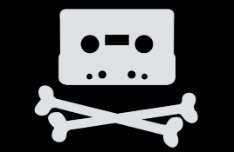Tolerating Piracy Can Benefit Consumers, Creators and Retailers, Research Finds

The harder it is for people to download something through unofficial channels, the more revenue will flow to the creators, the argument goes.
However, a new study by Indiana University researcher Antino Kim conducted together with colleagues from the University of Texas-Dallas and the University of Washington, suggests that this is not always the case.
The findings from their economic impact model are published in the latest edition of the MIS Quarterly Journal, in an article titled “The ‘Invisible Hand’ of Piracy: An Economic Analysis of the Information-Goods Supply Chain.”
According to their analysis, piracy limits the pricing power of both the creator and the retailer. This reduces the impact of double marginalization, which occurs when creators and retailers both add significantly to the price of a product.
Because piracy is seen as a form of “shadow competition” the price of a product, such as an HBO cable subscription, is pushed closer to the economic optimum. At that optimal price point, everyone is better off, including the broader economy.
“When information goods are sold to consumers via a retailer, in certain situations, a moderate level of piracy seems to have a surprisingly positive impact on the profits of the manufacturer and the retailer while, at the same time, enhancing consumer welfare,” Kim and his co-authors write.
“Such a win-win-win situation is not only good for the supply chain but is also beneficial for the overall economy,” they add.
The researchers mention Game of Thrones piracy as an example. The TV-show is widely known to be the most pirated series in history but HBO is not going to extremes to stop the public from sharing these episodes, which may be a good thing.
Following the logic of the paper, the threat of piracy keeps the price of HBO cable subscriptions down. Neither HBO (creator) nor the cable and satellite TV operators (retailer) are overcharging, despite their relative monopolies. This means a better price point and more legitimate consumers.
The authors of the article note that creators and retailers don’t have to encourage piracy all of a sudden. However, turning a blind eye to it may be in their own best interests in some cases.
“The implication is simply that, situated in a real-world context, our manufacturer and retailer should recognize that a certain level of piracy or its threat might actually be beneficial and should, therefore, exercise some moderation in their anti-piracy efforts,” the researchers write.
“This could manifest itself in them tolerating piracy to a certain level, perhaps by turning a blind eye to it. Such a strategy would indeed be consistent with how others have described HBO’s attitude toward piracy of its products,” they add.
The findings are based on an economic model which is limited to retailer sold information goods. Piracy doesn’t always have a positive effect but this research shows that it can help keep market prices balanced, which is an intriguing conclusion.
It highlights a positive aspect of piracy that has been overlooked before are certainly something for companies and governments to be aware of then they consider future anti-piracy measures.
—
Source: TF, for the latest info on copyright, file-sharing, torrent sites and more. We also have VPN reviews, discounts, offers and coupons.



Leave a Reply
Want to join the discussion?Feel free to contribute!